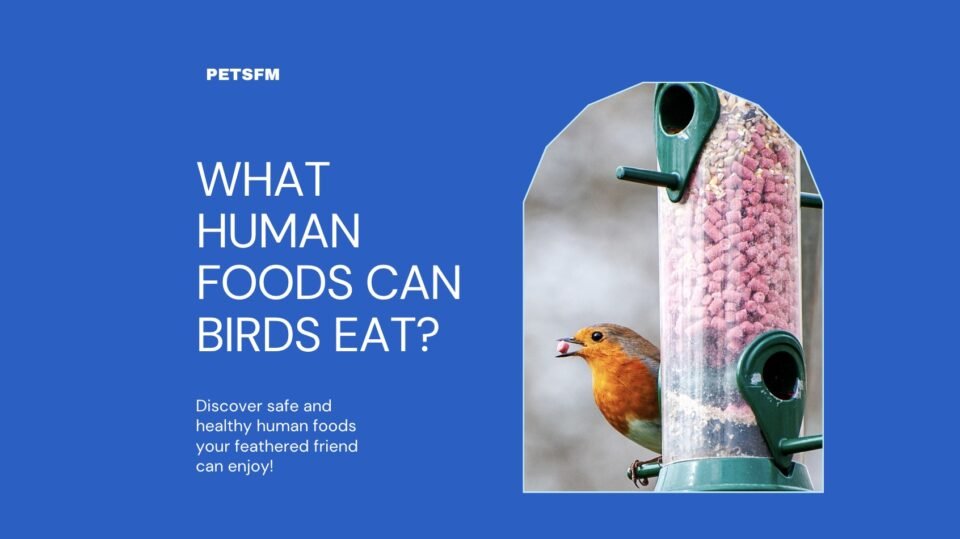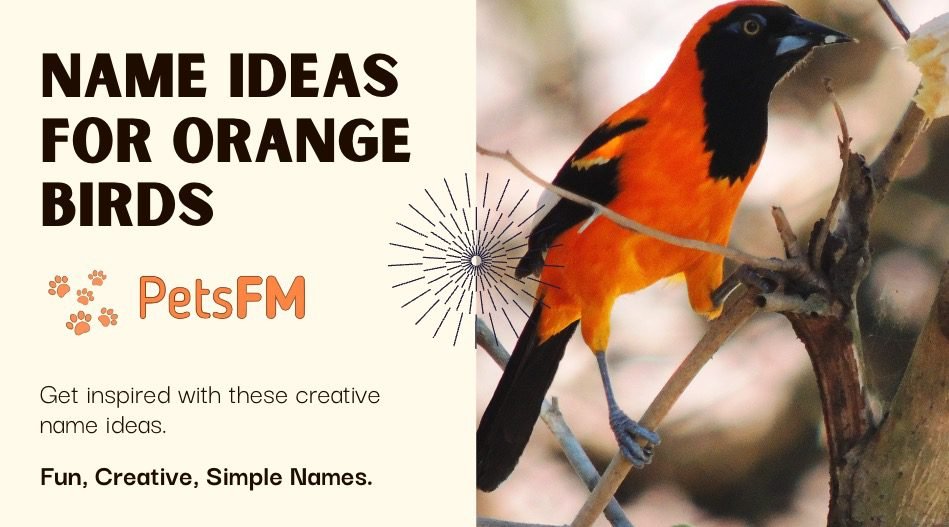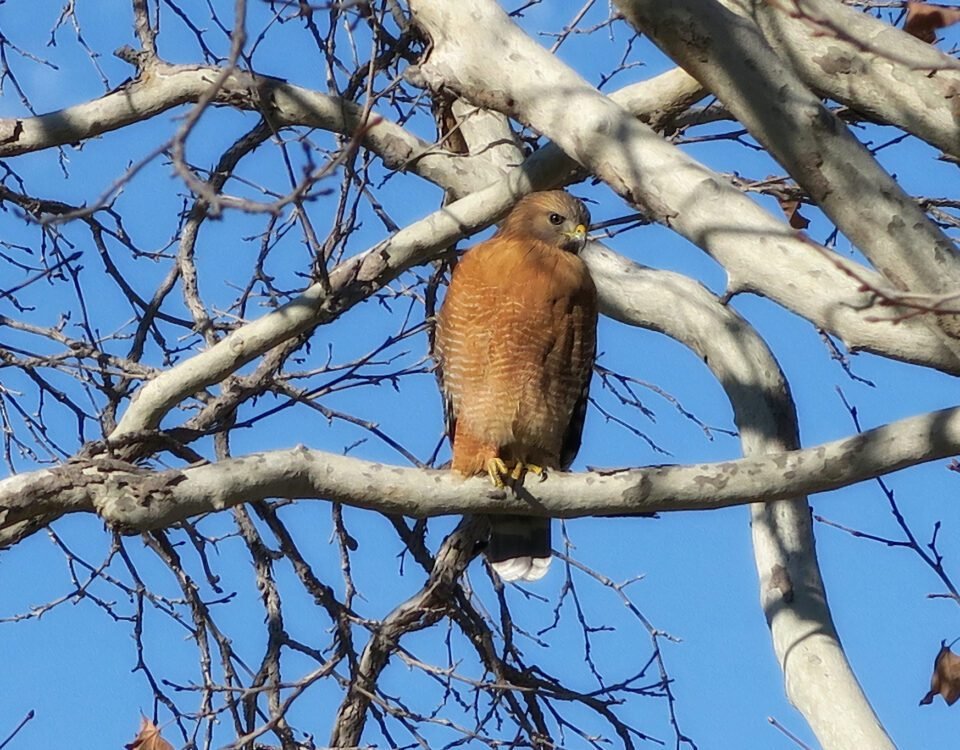


Are Owls Loyal and Friendly? (Everything You Need To Know)
October 19, 2023


Can Birds Eat Tomatoes? [Safe Vs. Unsafe Types]
October 21, 2023For many bird enthusiasts, the sight of our feathered friends perching by the window or the balcony can be delightful. Naturally, the inclination to share our meals with them arises. But knowing which human foods are safe for birds and which can be potentially harmful is essential.
From crushed eggshells to bits of meat and hard cheese, the items in your kitchen can attract backyard birds, supporting nature conservation efforts. Moreover, while seeds are undoubtedly nutritious for birds, kitchen scraps can provide them with an added boost of energy and essential nutrients.
For a deeper dive into this topic, continue reading. In this article, we’ve compiled a list of kitchen remnants that will draw in many backyard birds.
Also, Read: Can Birds Get Fat? (How To Fix And Prevent Obesity)
15 Human Foods That Birds Can Eat
Here is a list of 13 kitchen foods that you can offer to the visiting birds in your garden:
1: Apples
A favorite from your kitchen that birds love is apples. Numerous birds, like the pine grosbeak, eastern bluebird, northern flicker, American robin, cedar waxwing, and red-bellied woodpecker, are particularly fond of them.


Apples
However, slicing and discarding the seeds is essential when offering apples to these feathered friends. Alternatively, you can halve the apples, remove the core, and fill the hollowed portions with sugar water for an extra treat.
2: Bananas
When considering fruits from your kitchen to offer birds, bananas stand out as a top choice.


Bananas
Birds like the northern cardinal, gray jay, gray catbird, and scarlet tanager are particularly fond of bananas. When preparing bananas for these birds, it’s best to peel them and then slice them in half lengthwise.
Editor’s Pick: Are Birds Carnivores? A Look at Different Bird Species
3: Squash Seeds, Melon, and Pumpkin
These garden favorites aren’t just for human consumption. Birds like the eastern bluebird, American goldfinch, and dark-eyed junco relish the seeds from squashes, melons, and pumpkins.


Squash Seeds
When offering them, ensure they’re clean and raw. You can provide the flesh and seeds for melons, but avoid any treated or seasoned seeds.
4: Raisins
Raisins are a sweet treat loved by birds such as the cedar waxwing, northern mockingbird, and American robin.
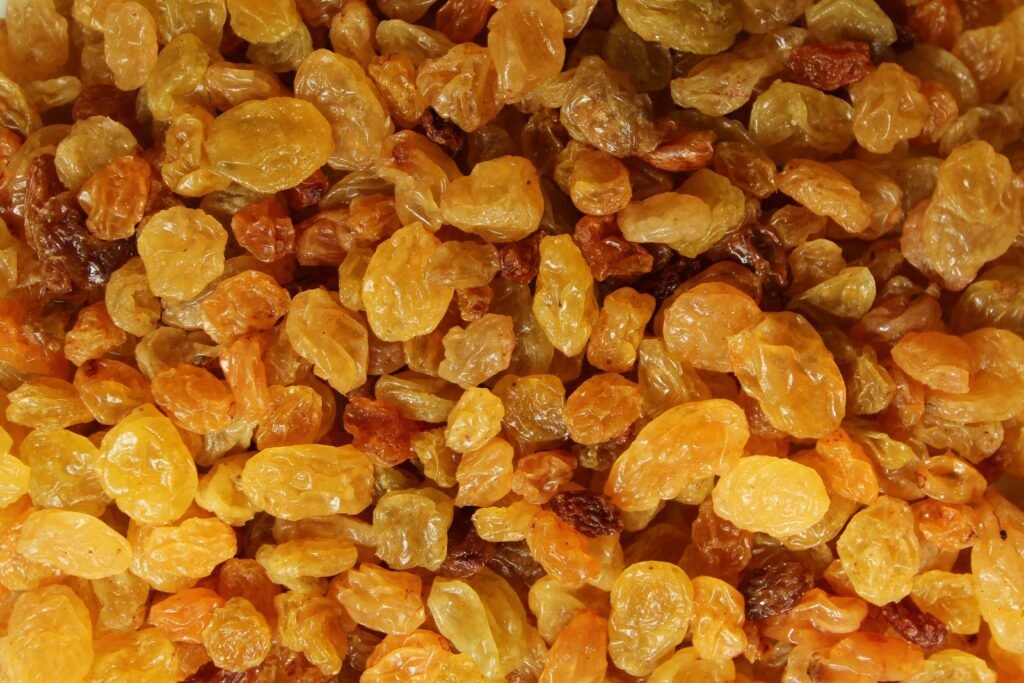

Raisins
Soak them in water for a little while before offering to make them more palatable and easier for the birds to eat.
Also, Read: 25 Birds With Red Heads (+Pictures Included)
5: Bread and Cereals
While not the most nutritious, birds like house sparrows, pigeons, and doves might nibble on bread and cereals in moderation. Always ensure they’re fresh and dry, and break them into manageable pieces.


Bread and Cereals
6: Various Nuts
Nuts are a nutritious treat for many birds, including chickadees, titmice, and woodpeckers. Make sure they’re unsalted and crushed or halved for smaller birds.


Shelled Walnuts
7: Cooked Pasta and Rice
Birds such as starlings and house sparrows appreciate the occasional carb boost from cooked pasta and rice. Ensure it’s plain, without any sauces or seasonings.
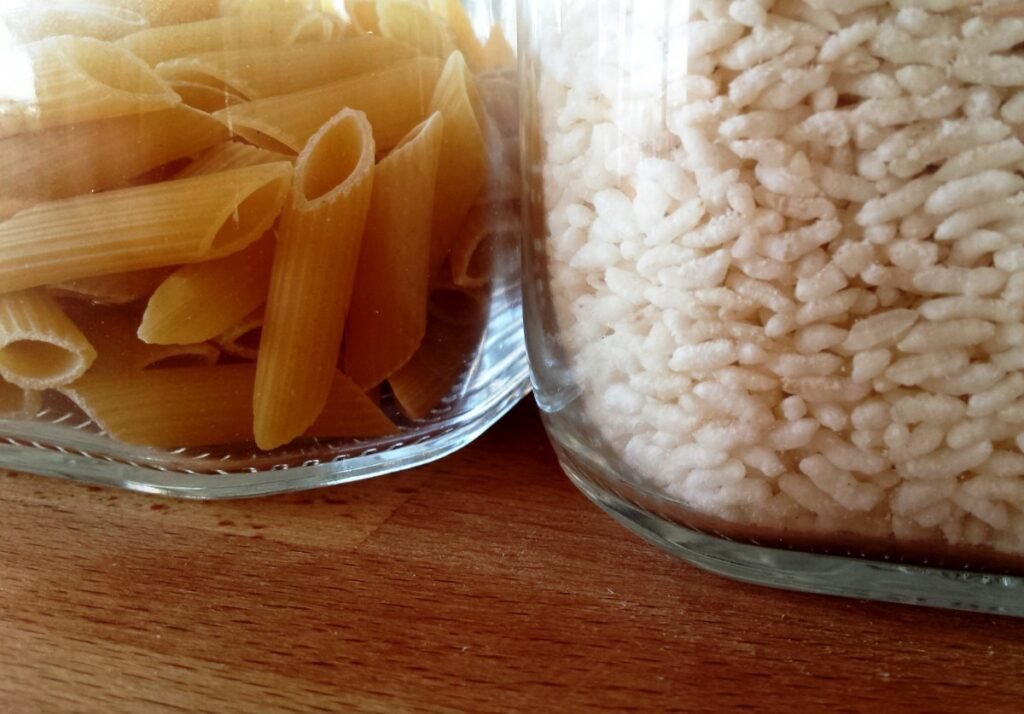

Cooked Pasta and Rice
8: Eggs and Eggshells
Birds like robins and starlings enjoy a surprising kitchen scrap, eggs, and their shells. Cooked eggs should be chopped up, and eggshells can be crushed and sprinkled for added calcium.


Eggs and Eggshells
Recommended Reading: Are Birds Omnivores? A Look at Different Species
9: Cheese
While not all birds can digest dairy, species like robins, wrens, and bluejays might be attracted to mild cheeses. Ensure it’s hard or semi-soft cheese and cut into small pieces.
Also, read if birds can have Milk.


Cheese
10: Peanut Butter
A delightful energy source, peanut butter attracts many birds, including nuthatches, warblers, and jays. Spread it thinly on tree bark or mix it with seeds for a hearty treat.
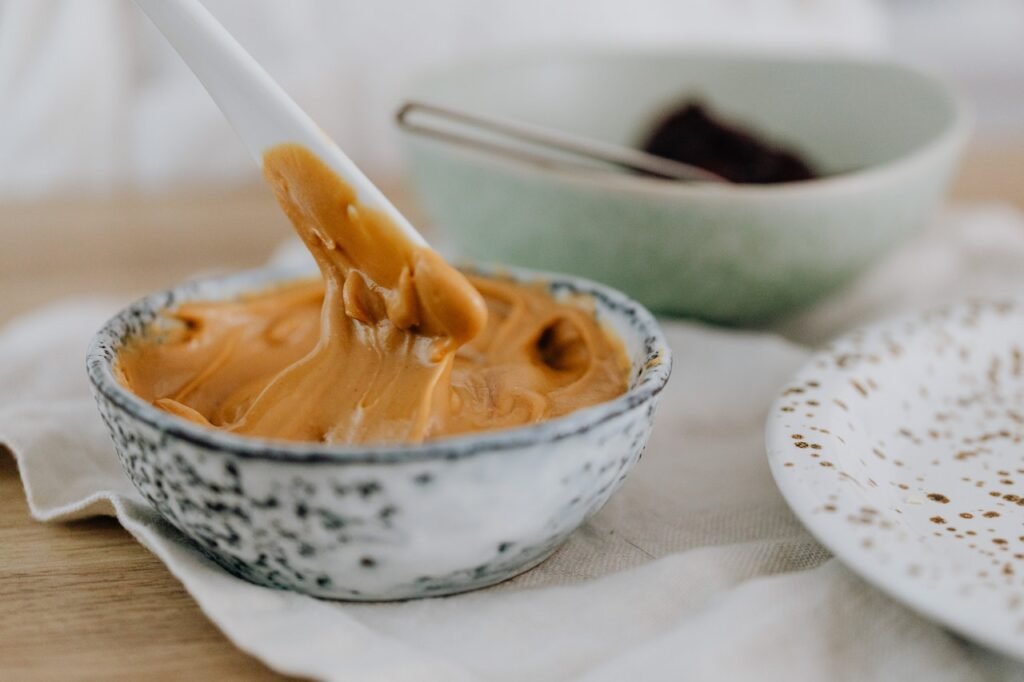

Peanut Butter
11: Peas, Potatoes, and Sweet Corn
These vegetables can be a hit with ground-feeding birds such as pigeons, doves, and quails. Always ensure they’re cooked, plain, and chopped into smaller sizes.


Baked Potatoes
12: Pet Food
Surprisingly, both dry and wet pet foods can be a nutritious treat for birds like robins, blackbirds, and wrens. Crumble dry food into smaller bits and ensure wet food doesn’t remain out too long.
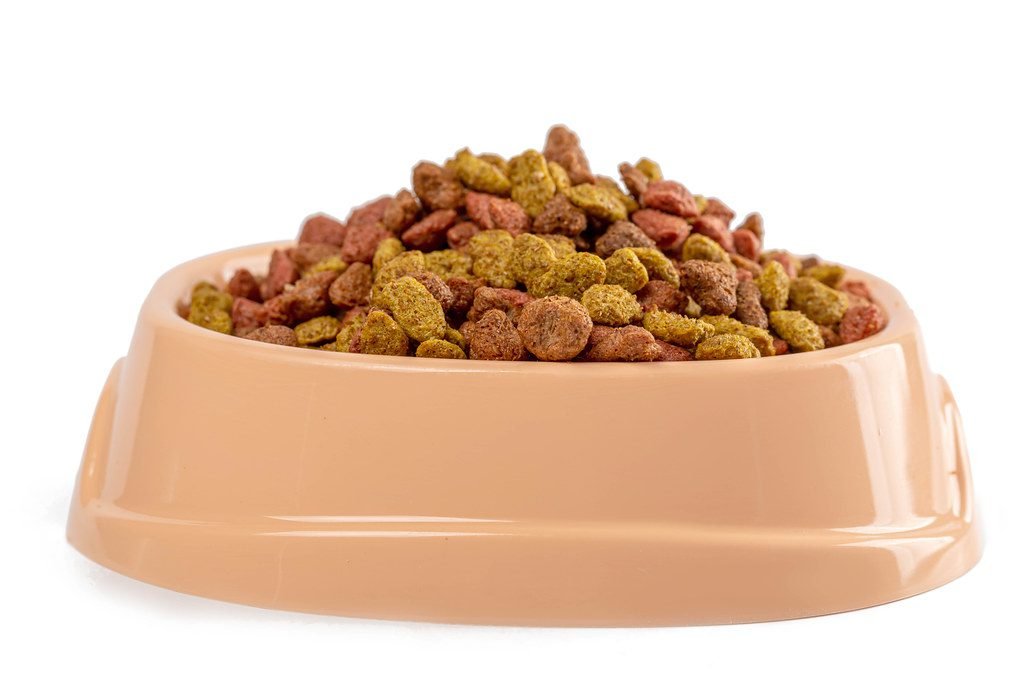

Pet Food
13: Meat
Offering cooked meat can attract birds like crows, magpies, and even some raptors. Ensure the meat is unseasoned and any fat is trimmed off. Chop into manageable bits before serving.
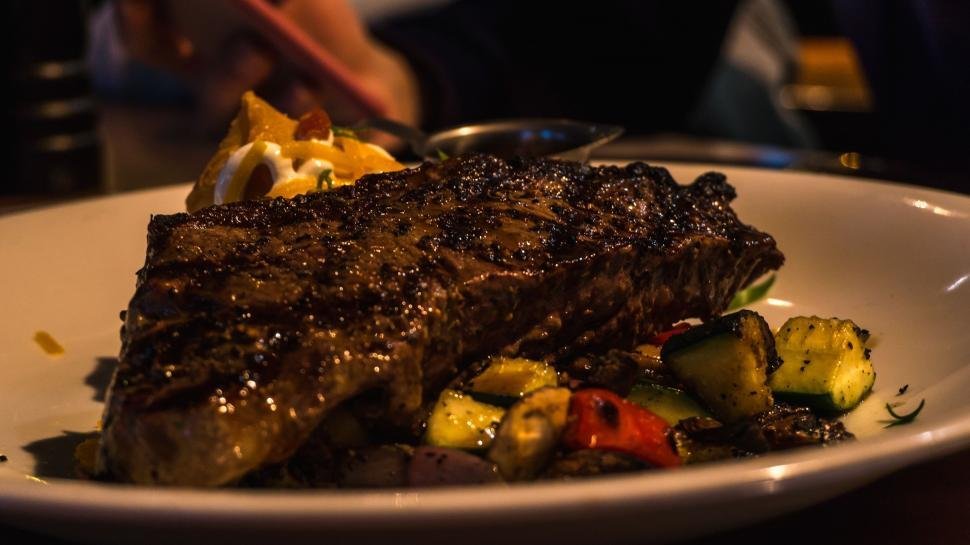

Cooked Meat
14: Berries and Other Fruits
Many birds, including orioles, thrushes, and waxwings, are attracted to various fruits. Blueberries, strawberries, and cherries can be excellent choices.
Ensure they’re fresh or thawed from frozen and are cut into suitable sizes if needed. Avoid any fruits that have been treated with pesticides.


Berries and Other Fruits
Must Read: Are Birds Herbivores? A Look at Different Bird Species
15: Cooked Legumes
Beans and lentils are packed with proteins and are a suitable choice for birds like finches, sparrows, and doves.
Ensure the legumes are well-cooked, unsalted, and mashed or broken up to make them more accessible for smaller birds. Always avoid any legumes cooked with spices or other additives.


Cooked Legumes
Best Food For Birds In Colder Season
Providing proper care can be a bird lifeline during the colder months. Maintaining a consistent supply of food and water for them is crucial.
Consider offering food twice daily in especially harsh conditions: once in the early morning and, if feasible, once in the early afternoon.
High-fat foods like cakes and food bars are ideal for birds during this time, as they offer the energy they need to stay warm. Peanuts are another excellent option, as is birdseed enriched with oils.
Additionally, certain kitchen leftovers, like fat, suet, cooked potatoes, and dried fruits, can be hearty meals for our feathered friends.
Should You Offer Backyard Birds Salted Peanuts?
The simple answer is no. Many backyard birds have difficulty processing salt, and excessive consumption can even be fatal.
Therefore, it’s best to avoid offering foods high in salt to birds, such as salty bacon and salted peanuts, and salty snacks like crisps and chips.
Is It Safe to Feed Birds Peanuts During the Breeding Season?
Indeed, it is. During the breeding season, providing peanuts in mesh feeders is acceptable. Typically, birds can’t carry away whole nuts, which could pose a choking hazard to their young.
However, ensure you don’t use nylon mesh bags, as they can trap and injure a bird’s feet.
Conclusion
Feeding your backyard birds with kitchen scraps can offer distinct advantages. Items like fruits, vegetables, and cheeses from your kitchen can benefit birds, particularly during winter and migratory periods. These scraps can enrich their diet with essential nutrients and offer a refreshing change from their usual fare.
However, be cautious; meats and fruits can deteriorate and become sour if not consumed quickly. It’s essential to closely monitor these food items, removing them at the first indication of spoilage.
